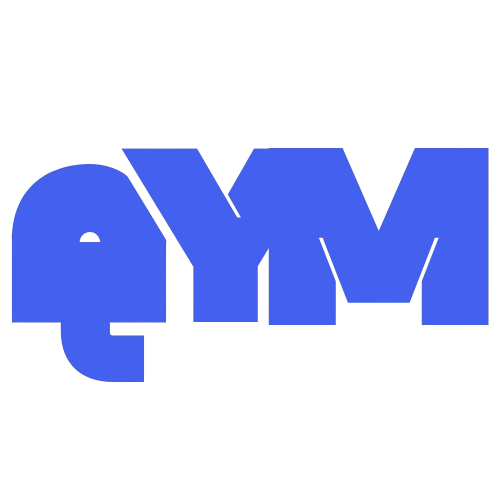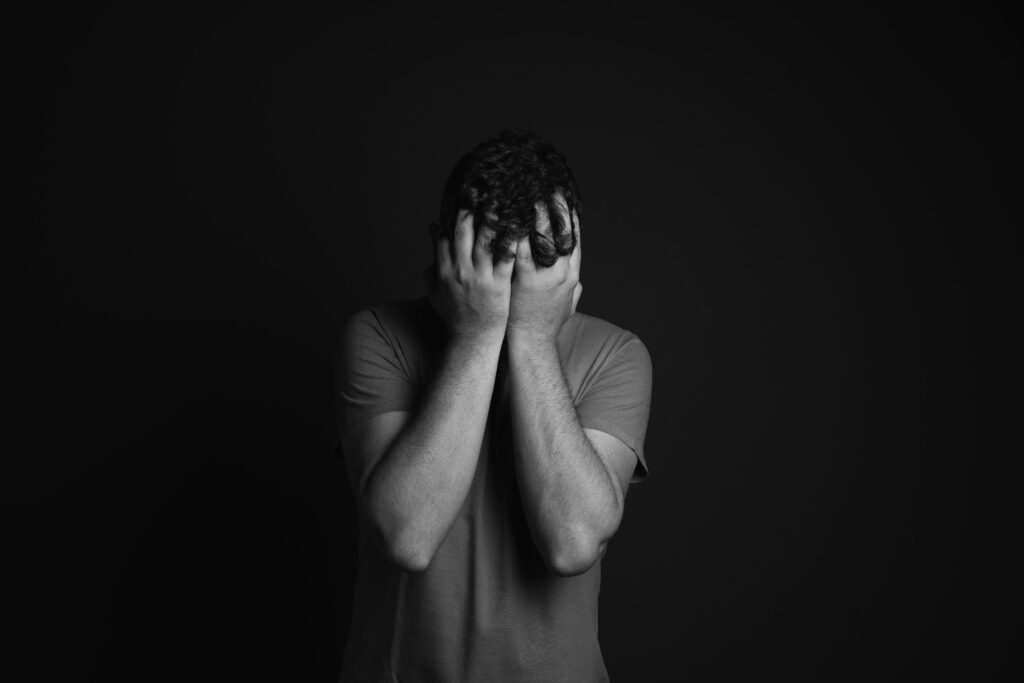In today’s world, we’re always connected to our devices. Notifications, social media, and screens fill our lives. But this constant connection can harm our sleep and mental health. Taking a digital detox can help you get better rest and clear your mind.
Key Takeaways
- The constant connectivity of technology can disrupt sleep and mental focus
- A digital detox involves intentionally unplugging from digital devices and online activities
- Unplugging can lead to better sleep, reduced stress, and improved mental clarity
- Developing healthy tech-life balance through digital minimalism is crucial
- Incorporating offline activities and mindfulness practices can support a successful digital detox
The Pervasive Influence of Technology
In today’s world, technology is everywhere. It’s in our phones, computers, and even our homes. This tech landscape brings both good and bad, affecting our well-being.
The Constant Connectivity Dilemma
Technology keeps us connected, but it can also be a problem. It can make us feel like we must always be online. This can hurt our sleep and mental health.
The Impact on Sleep and Mental Well-being
Technology, especially its blue light, affects our sleep and mood. It can mess up our sleep patterns. This can lead to stress, anxiety, and even depression.
| Impact | Explanation |
|---|---|
| Constant Connectivity | The need to be available 24/7, responding to digital notifications and messages, can lead to technology overuse and digital distractions. |
| Sleep Disruption | The blue light emitted by digital devices can disrupt the body’s natural circadian rhythms, making it harder to fall asleep and reducing sleep quality. |
| Mental Health Impacts | The combination of technology overuse, digital distractions, and sleep disruption can contribute to increased stress, anxiety, and even depression. |
We must find a balance with technology. It’s important to control its impact on our lives. The next section talks about digital detox and how it can help us.
What is a Digital Detox?
A digital detox means taking a break from digital devices and online activities to feel better. It’s about unplugging from technology and focusing on digital wellness practices. These practices help you be more mindful, relaxed, and balanced in life.
The digital detox definition includes many activities to cut down on digital use. It’s about reconnecting with the real world. Some examples are:
- Not using smartphones, tablets, computers, and other devices for a while
- Spending less time on social media, email, and other online sites
- Doing offline hobbies and activities that don’t need technology
- Choosing to meet people face-to-face and have real-world experiences
By unplugging from technology and following digital wellness practices, you can sleep better, feel less stressed and anxious, and think more clearly.
“A digital detox is a temporary period of time during which a person refrains from using digital devices such as smartphones, computers, and social media, in order to reduce stress or focus on real-world interactions.”
The length of a digital detox can vary. It can be a few hours, days, or even weeks. The goal is to find what works best for you and your life.
In the end, the digital detox definition shows the need for a balance between our digital and offline lives. It helps us enjoy technology’s benefits while taking care of our physical and mental health.
Unplugging for Better Sleep
In today’s world, too much blue light from devices can hurt our sleep. Taking a digital detox can really help improve your sleep hygiene and health.
The Negative Effects of Blue Light
Blue light from phones, tablets, and computers messes with our sleep cycle. It stops our body from making melatonin, the sleep hormone. This makes it tough to fall and stay asleep.
Creating a Sleep-Friendly Environment
- Make a technology-free bedtime routine. Don’t use digital devices an hour before bed.
- Get blue light-blocking glasses or use software to cut down blue light from devices.
- Keep your bedroom dark, cool, and quiet for the best sleep.
- Do relaxing things like reading or gentle stretching to get ready for sleep.
By doing a digital detox and making your bedroom sleep-friendly, you can get better sleep and clearer thinking. Good sleep hygiene is key to a healthier life.
| Factors Affecting Sleep Quality | Impact of Digital Detox |
|---|---|
| Blue light exposure before bed | Reduced, leading to improved melatonin production and better sleep onset |
| Cognitive stimulation from digital devices | Decreased, allowing the mind to wind down and transition into a restful state |
| Disruption of natural sleep-wake cycles | Regulated, with the body’s circadian rhythms aligning better with natural light and dark cycles |
By focusing on a digital detox and a sleep-friendly space, you can get better sleep and clearer thinking. Good sleep hygiene is vital for a healthier life.
Digital Detox for Mental Clarity
In today’s world, we’re always bombarded with notifications and distractions. This can hurt our mental focus and how well we think. Taking a digital detox can help you clear your mind and boost your productivity.
Minimizing Distractions and Multitasking
A digital detox helps you avoid distractions and multitasking. When you’re always switching tasks, your brain can’t focus well. By cutting down on digital distractions, you can improve your mental focus and make better choices.
- Identify and eliminate unnecessary digital notifications
- Limit the use of social media and other time-consuming apps
- Designate specific times for checking and responding to emails
- Practice the art of mindful technology use by being intentional about your digital interactions
By doing a digital detox for mental focus, you give your mind space to concentrate. This leads to better information processing and decision-making. You’ll see big changes in your life, both personally and professionally.
| Benefits of Minimizing Distractions | Outcomes of Improved Mental Clarity |
|---|---|
| Enhanced focus and concentration | Increased productivity and efficiency |
| Reduced mental fatigue and burnout | Better decision-making and problem-solving |
| Improved memory and information retention | Greater creativity and innovation |
By trying to reduce digital distractions and use technology mindfully, you can unlock the benefits of a digital detox. You’ll see a big improvement in your mental clarity.
The Benefits of Mindfulness and Presence
Starting your digital detox journey can greatly improve your well-being. By stepping away from digital distractions, you open up to deeper self-awareness. You also connect more with the world around you.
Doing activities without technology can boost your mindfulness. This means being fully in the moment. It helps your mind stay focused and clear, reducing the mental noise from constant digital use.
- Enhance your ability to focus and concentrate
- Reduce feelings of stress and anxiety
- Improve your overall sense of well-being and life satisfaction
Being present during your detox also makes you appreciate life more. Without digital distractions, you can engage fully with your surroundings. This can make you more grateful, improve relationships, and bring back the joy of living.
| Benefits of Mindfulness and Presence | Descriptions |
|---|---|
| Increased Focus and Concentration | Stepping away from digital distractions allows you to direct your attention to the task at hand, improving your ability to stay focused and productive. |
| Reduced Stress and Anxiety | Engaging in mindfulness practices and being present in the moment can help alleviate feelings of stress and anxiety, promoting a greater sense of calm and well-being. |
| Enhanced Appreciation for Life | By fully engaging with your surroundings and experiences during your digital detox, you can develop a deeper appreciation for the beauty and wonder of the world around you. |
Let the power of mindfulness and presence transform your digital detox. These practices can bring clarity, purpose, and connection. They lead to a healthier, more fulfilling life.
“The present moment is filled with joy and happiness. If you are attentive, you will see it.” – Thich Nhat Hanh
Strategies for a Successful Digital Detox
Starting a digital detox can change your life, but it needs a good plan. To make your detox work, set tech limits and find fun things to do offline. This way, you can replace screen time with real-life activities.
Setting Boundaries and Limits
Setting clear limits with your devices is key to a good detox. First, figure out when and where you always check your phone. Then, make a plan to stop these habits. Here are some tips:
- Make some areas or times phone-free, like during meals or after a certain time at night.
- Turn off notifications and app badges to stop the urge to check your phone all the time.
- Use your device’s built-in tools to limit how long you spend on certain apps.
- Put your phone in another room when you’re doing something else, like work or spending time with family.
Finding Offline Hobbies and Activities
To really enjoy a digital detox, you need to find things to do without screens. This helps you focus on the moment and feel more connected. Try these ideas:
- Read books or magazines instead of screens.
- Start a new craft or hobby, like painting or gardening.
- Go outside and do things like hiking or biking.
- Try mindfulness or meditation to calm your mind.
- Meet up with friends and family in person.
By setting limits on your devices and finding offline fun, you can have a great digital detox. You’ll sleep better, think clearer, and feel happier overall.
| Digital Detox Strategy | Description |
|---|---|
| Set Tech Boundaries | Designate tech-free zones and times, disable distracting notifications, and utilize screen time limits. |
| Explore Offline Activities | Engage in reading, creative hobbies, outdoor pursuits, mindfulness practices, and in-person social activities. |
The Digital Detox Challenge
Starting a digital detox can feel scary, but it’s key to taking back control of your life. The digital detox challenges might seem huge, but with the right mindset, you can beat them. This way, you can enjoy a more balanced and meaningful life.
One big challenge of digital detox is the habit of always being connected. You might find yourself reaching for your phone or laptop without thinking. It takes effort and a desire to be in the moment to break this habit.
Another big challenge of overcoming tech dependency is the fear of missing out (FOMO). The constant flow of news and social media can make you feel anxious. To make a digital detox commitment, you must learn to let go of this fear. Instead, find joy in what’s happening now, not what’s online.
Lastly, digital detox can reveal deeper emotional or psychological ties to technology. You might turn to devices when feeling bored, anxious, or without purpose. To succeed, focus on mindfulness, self-reflection, and finding offline hobbies and friends.
The digital detox challenge is serious, but the benefits of a clearer, more balanced life are worth it. By embracing the digital detox commitment and facing these challenges, you start a journey towards a healthier tech relationship.
| Challenge | Strategies for Overcoming |
|---|---|
| Habit of Constant Connectivity | Gradually reduce time spent on digital devices Implement designated “no-tech” times and zones Find alternative activities to occupy your hands and mind |
| Fear of Missing Out (FOMO) | Reframe your mindset to focus on the present moment Cultivate a sense of self-sufficiency and contentment Engage in offline social activities and experiences |
| Emotional Dependency on Technology | Explore the underlying reasons for the dependency Develop self-awareness and mindfulness practices Discover new hobbies and pursuits to fill the void |
“The true sign of intelligence is not knowledge but imagination.” – Albert Einstein
Remember, the digital detox challenge is about making progress, not being perfect. By embracing the journey and tackling obstacles with patience and determination, you can unlock the transformative power of a digital detox commitment and overcoming tech dependency.
Creating a Tech-Life Balance
In today’s digital world, it’s key to balance tech use with our daily lives. Adding digital wellness to your routine helps keep tech use healthy and sustainable.
Incorporating Digital Wellness into Daily Life
To achieve a good tech-life balance, try these tips:
- Set boundaries: Make tech-free areas and times, like during meals or before bed, to cut down on distractions.
- Prioritize offline activities: Do hobbies, exercise, or hang out with people without screens. It helps you feel good and refreshed.
- Limit notifications: Change your device settings to get fewer alerts. This makes it harder to keep checking your phone.
- Practice mindfulness: Take breaks to breathe, meditate, or just be in the moment. It helps clear your mind from digital noise.
| Digital Wellness Practices | Benefits |
|---|---|
| Tech-free zones and times | Less digital distraction, better focus and productivity |
| Offline hobbies and activities | More physical and mental health, better work-life balance |
| Customized notification settings | Less stress and anxiety, more attention and mindfulness |
| Mindfulness and meditation | Clearer mind, less emotional turmoil, better stress handling |
By adding these digital wellness practices to your day, you can find a tech-life balance. This lets you use tech wisely while keeping your digital habits sustainable.
“The key is to find a balance that works for you and your lifestyle, allowing you to reap the advantages of technology without sacrificing your well-being.”
The Power of Digital Minimalism
In today’s world, digital minimalism is a key to fighting off the digital clutter. It teaches us to choose what we use online with care. This way, we can have a cleaner digital life and a better relationship with our devices.
At its core, digital minimalism says that sometimes, less is more. By using technology wisely, we can save time and feel better. It helps us avoid distractions and live a more mindful digital life.
- Identify and eliminate unnecessary digital distractions
- Prioritize the technology that truly serves your goals and values
- Embrace offline activities and hobbies to counterbalance screen time
- Develop a more intentional relationship with your devices and social media
By following digital minimalism, you can find simplicity and improve your life. It helps you focus better, sleep more, and feel less stressed. You’ll also enjoy your daily moments more.
“The key to living well in a high-tech world is to spend much less time using technology, not more.”
– Cal Newport, author of “Digital Minimalism”
| Benefits of Digital Minimalism | Strategies for Digital Decluttering |
|---|---|
| Improved sleep and mental clarity | Uninstall unnecessary apps |
| Reduced stress and anxiety | Limit social media and screen time |
| Greater focus and productivity | Embrace offline hobbies and activities |
| Enhanced mindfulness and presence | Implement digital detox routines |
Conclusion
Learning about digital detox shows many benefits for your health. By embracing a healthier lifestyle and taking a technology break, you can improve your sleep and mental focus. You also get a better balance with digital life.
For a successful digital detox, set limits, reduce distractions, and be mindful every day. This helps you find a balance between tech and life. You’ll feel the positive effects of unplugging and enjoy the moment more.
Start this journey and see the digital detox benefits for yourself. It’s a chance to recharge and reconnect with the world. Your mind and body will appreciate the focus on your well-being.
“The first step in crafting the life you want is to get rid of everything you don’t.” – Joshua Becker
Remember, a healthier, more fulfilling life is possible. So, take the step, unplug, and find the power of digital detox. Your path to better sleep, mental clarity, and balance is waiting.
Additional Resources
If you’re interested in digital detox and living without technology, there’s a lot to explore. You can find books and online guides that offer valuable insights. They help you improve your sleep, mental clarity, and balance with technology.
“Digital Minimalism” by Cal Newport is a great read for understanding technology’s impact. It shows how to live a more intentional digital life. “The Shallows” by Nicholas Carr also sheds light on how digital immersion affects our minds. It’s a key resource for your digital detox journey.
For the latest on digital wellness, check out Healthline’s “Digital Detox” section or the American Psychological Association’s “Digital Wellness” guide. These sites are full of tips and strategies. They help you manage your digital life and protect your mental and physical health.
FAQ
What is a digital detox and why is it important?
A digital detox means taking a break from digital devices and online activities. It’s key to improving your well-being. Constant digital distractions can harm your sleep, mental clarity, and life quality.
How can a digital detox help with better sleep?
A digital detox can improve sleep by reducing blue light from screens. This light can mess with your sleep cycle. It also helps create a calm sleep environment, free from tech.
What are the mental health benefits of a digital detox?
A digital detox can reduce mental overload and distractions. It improves focus and mental clarity. It also makes you more present and mindful, boosting your mental health.
How can I make my digital detox successful?
To succeed in a digital detox, set clear limits on device use. Find offline activities to replace screen time. Stay committed, even when it’s hard. Mindfulness and being present can make it more rewarding.
What are some strategies for maintaining a healthy tech-life balance?
To keep a healthy balance, use digital wellness practices daily. Set screen time limits and have tech-free times. Mindful tech use is also key. Balance digital and offline activities for a fulfilling life.
How can digital minimalism help during a digital detox?
Digital minimalism focuses on intentional tech use. It enhances a digital detox by decluttering your digital space. This leads to a healthier, more fulfilling tech relationship.


